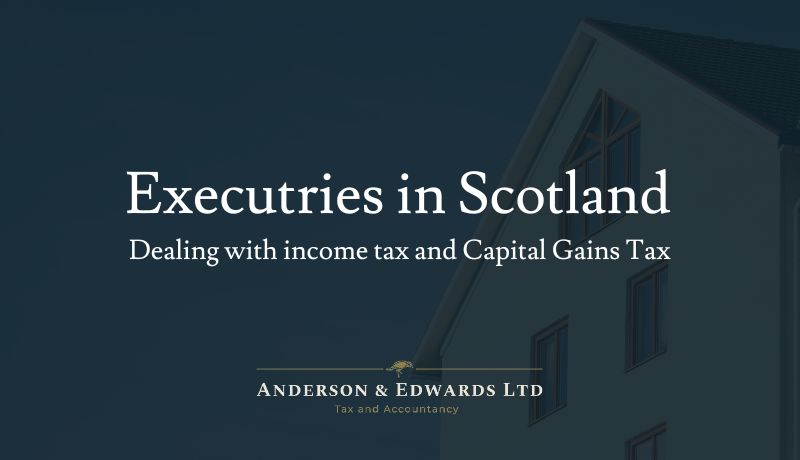
It’s often a sensitive topic, but it is possible that there may be some income tax and capital gains tax to pay on a deceased estate, after a person has died. I know - it seems so unfair! It’s also quite a messy process as information needs to be gathered by people other than the deceased – which can be very tricky during this sensitive time.
James gives you an example of something he sees quite a lot, and the list of action points which need to be done for income tax.
Mr McTavish died on 7 June 2021. He had these assets:
Mr McTavish was (hopefully) preparing annual tax returns to report his income/gains (the property income at least would require it). He may have prepared his 2020/21 tax return to report the income up to 5 April 2021 before he died (although it’s unlikely as the investment portfolio information likely wouldn’t have arrived before his death).
He would not have reported the income/gains for 6 April 21 to 7 June 2021.
So, these two things would need to be done.
There is a very good chance that the “bond” mentioned above could have triggered a “chargeable event gain” on his death and this would need to be reported in the 6 April 21 to 7 June 21 final tax return to the date of death. There are many reasons for this not triggering a gain, and it can cause a few issues if it does not. Perhaps the bond was held in a trust, and perhaps the bond was not assured to Mr McTavish’s life – this needs to be researched. Cashing in a chargeable event gain after a person has died and before it is assigned can have major tax consequences.
Deceased estates can take a long time to manage - years even!
During this time income will continue to accrue on the estate. The rental income wouldn’t stop, the dividends and interest would continue to be paid. ISA income is typically not taxable (anymore) on deceased estates but “it depends” and this might need to be looked at too.
This income needs to be reported to HMRC and tax needs to be paid on it.
A tax calculation will need to be made for each tax year the administration period falls into. For example, if the administration period finished on 31 May 2023 the tax calculations would be:
8 June 2021 to 5 April 2022
6 April 2022 to 5 April 2023
6 April 2023 to 31 May 2023
The way this is reported will vary depending on the type and the amount of income/gains generated in the administration period. There may even be a need to do the 60 day CGT return when selling the residential properties.
Income tax will usually be payable on the income earned during the administration period. However, the income is allocated to the beneficiaries at the point assets are paid to them. This income has already had tax paid by the estate. A form called an R185 is given to the beneficiaries to help them report the income. The beneficiaries will occasionally receive a repayment of this tax, or there may be additional tax to pay by the beneficiary – it will depend on their own personal tax position.
Finally, there are some transactions which can take place during the administration period which will affect the IHT bill (which has likely already been submitted and paid by this point).
Fall in Value relief is a great example of this, as assets may have dropped in value from the date of death, and they may have been sold to pay the IHT bill. Capital losses are typically not much use to an administration period and so a reduction in IHT may be possible (if the timing criteria are met).
There is a lot of crossover between chartered tax advisers and qualified private client solicitors in this area. Most larger law firms will deal with this area themselves. However, if you are a private client solicitor dealing with executries who would like some tax help on administration periods (without treading on your toes with the main IHT reporting) then please get in touch: email Enable JavaScript to view protected content. or call James Edwards, our Tax Director on 0131 364 4191.
© 2025 Anderson & Edwards Ltd|Registered in Scotland SC678768|Privacy Policy|Website by Broxden